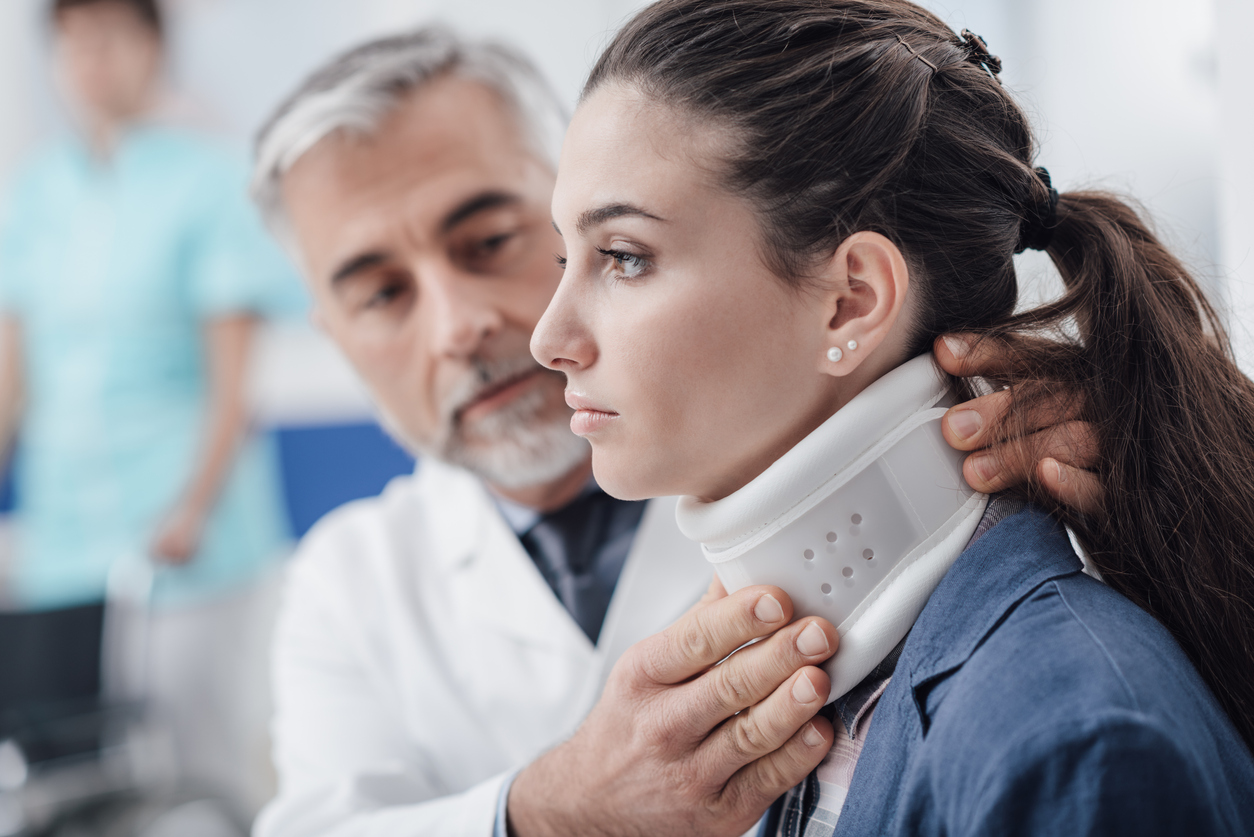
Following a few simple steps helps you down the line if you decide to file a lawsuit. You’ll have a much greater chance of obtaining maximum compensation, and you’ll save time, money, and effort which can be better utilized in your recovery.
1. Seek medical attention.
This is a critical first step after suffering injuries in an accident. Even if you feel fine or don’t have visible injuries, you should visit a doctor or medical professional. They will conduct a full exam and determine if you have latent injuries (injuries that appear weeks or months after the accident).
Here’s why it’s so important to seek medical attention: if you don’t visit the doctor, you won’t receive a thorough evaluation, which means latent injuries will likely go unnoticed. If the other party’s insurance company or legal team offers you a settlement and you accept, you may realize after the fact that the amount is much too low to treat the injuries.
However, because you accepted the settlement, you cannot pursue further legal action. That means you’ll have to pay for any treatment and procedures out of pocket.
2. Avoid speaking with certain parties.
Do not discuss the accident with the other party’s insurance company or legal team until you have a lawyer. If you speak to them without your attorney present, you may compromise your case by saying something that insinuates guilt, or at least partial blame. If you do that, you’ll likely receive heavily reduced compensation or no compensation at all.
At the scene of the accident, avoid saying things like “I’m sorry,” or, “I didn’t mean to.” Statements like these can be interpreted as an admission of guilt. You may have an instinct to apologize even if the accident wasn’t your fault, but avoid doing so.
You should also avoid posting about the accident and your injuries on social media, especially if you don’t have private accounts. The other party and their insurance company may look you up on social media and monitor your posts, hoping you’ll say or reveal something that could compromise your case.
3. Obtain legal representation.
The other party’s insurance company or legal team may try to dissuade you from hiring an attorney. That’s because it’ll be easier for them to give you less money if you don’t have a lawyer to defend your interests and get you the compensation you need.
In addition to protecting your legal interests, a Chicago personal injury lawyer can help you receive the best medical care, accurately evaluate damage with the help of accident reconstruction experts, and offer you peace of mind.
At Langdon & Emison, our attorneys don’t get paid until you do. Rest assured that they will work relentlessly to get you the compensation you need and nothing less.
You’ll be ready to move on to the next step after hiring a Chicago personal injury attorney.
4. Gather evidence and participate in the investigation.
The most hands-on of the steps in what to do after a personal injury, obtaining evidence is crucial to your case. The basis of any personal injury case is proving that the other party acted negligently, causing the accident that led to your injuries.
It’s important that you gather as much evidence and documentation as you can. This will clearly establish that the other party is to blame for the accident and that you should be compensated for damages. Some evidence you can gather include:
- Medical records
- Police reports
- Witness information
- Photographs of the accident scene
It’s important to note that while police reports provide valuable insight into the facts of the case, they are not admissible as evidence in Illinois courts. They contain statements that may be considered hearsay because the police officer was not present when the accident occurred.
Finally, remember that your attorney is there to help you; you should participate in the investigation and try to gather any documents they may request. Your case will go much smoother if you and your attorney keep in contact and you respond promptly and attentively to their communication.
What To Do After a Personal Injury
If you suffered injuries due to an auto or consumer product defect, a truck or auto accident, premises liability or nursing home abuse, you need a legal team who will fight vigorously for the compensation you deserve. The attorneys at Langdon & Emison provide legal services for injured victims of accidents, and we don’t settle for anything less than our clients need. For more information and to schedule your free case consultation, call (866) 931-2115.

